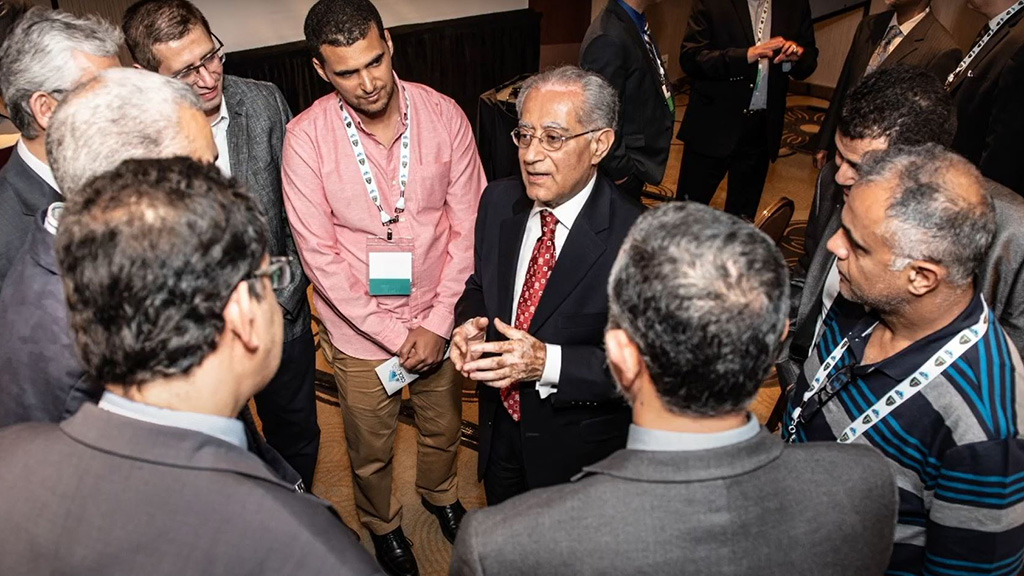A Concordia University professor of civil engineering with multiple breakthroughs in construction automation, asset management and project optimization was one of 78 appointees to the Order of Canada announced by Gov. Gen. Mary Simon on Dec. 28.
Osama Moselhi, director of the Centre for Innovation in Construction and Infrastructure Engineering and Management in the civil engineering department at Concordia in Montreal, has made significant contributions to the engineering of tall buildings, bridges, nuclear power plants, harbour and offshore facilities as part of his private sector project portfolio; supervised and co-supervised over 100 masters and PhD graduates; and authored and co-authored over 400 scientific publications in the world of academia.
The Egypt-born Moselhi said the Order of Canada recognition stood apart from the many honours he has received from his engineering colleagues.
“It’s a major difference, frankly,” said the Montrealer. “I’m not only honoured and humbled truly by the recognition at the national level, this is something really remarkable and coming at this stage in my career, it’s really something so special for me.”
In 2019 the Canadian Society for Civil Engineering celebrated Moselhi by naming its construction division best-paper award after him. During the ceremony, his former student Khaled A El-Rayes, a professor at the University of Illinois at Urbana-Champaign, said Moselhi taught him how to pursue excellence and that it’s important to work both smart and hard.
“I also observed how he cared for his students, not only in the classroom but outside of the classroom and beyond the classroom. It is lifelong,” said El-Rayes that day.
Today Moselhi is most immersed in project automation, working with teams of students to advance such fields as automated detection of resources on construction jobsites; optimized planning and automated productivity assessment and tracking of large earth-moving operations; and quantitative modelling of change orders and weather impact on productivity.
Moselhi and his students use digital imaging, 3D laser scanning, remote sensing, RFID, UWB, AI, web-enabling technologies, BIM and digital twinning to advance progress reporting, safety applications and more.
“In terms of remote sensing technologies…I worked very hard and a lot of my former grad students have taken leadership in Canada and elsewhere in the area of asset management for civil infrastructure systems, bridges, tunnels, water distribution networks, this kind of stuff,” he said.
Moselhi explained his productivity by saying he has a huge and unabated appetite for new projects. Over 40 years ago, his fascination with tall buildings led to innovations in the tube-in-tube structural systems in tall structures, related to load-bearing.
“The challenge here, how can you do more with less, how could you analyze these beautiful systems in a manageable way?” he said.
Next it was nuclear power, with Moselhi employed by CanAtom and working on containment structures. His team, he said, contributed a “very excellent piece of work in structural analysis of the containment structure, and many other contributions in the internal structure.”
That was followed by several years as senior adviser to Saudi port authorities during the peak of harbour construction in that part of the world.
Later Moselhi worked on Canada’s InfraGuide, the national guide to municipal infrastructure asset-management best practices.
In total he was involved in the development of 52 practices and received an award from the Federation of Canadian Municipalities.
Moselhi took two sessions of sabbaticals to help develop a construction scholarship in his home country and has played a leading role in building up the construction research sector at Concordia.
The growth of the Centre for Innovation in Construction, with Moselhi as a driving force, represented an opportunity to “pass the torch” to another generation, he said. It has been a “major source of help for students to learn from one another, not only from the professors moving forward, and…to create a culture of can-do meaningful research.”
He sees a bright future for innovation in construction, he said, in part because in recent years contractors have taken to hiring the brightest scholars.
“If you go back 15 years, have you ever heard of a contractor who will hire a PhD? They’re hiring because they need that technology that the industry is picking up,” said Moselhi.
Summing up, the prof said, “It was a beautiful journey for me. I enjoyed it, I must tell you.”
Follow the author on Twitter @DonWall_DCN.



Recent Comments
comments for this post are closed